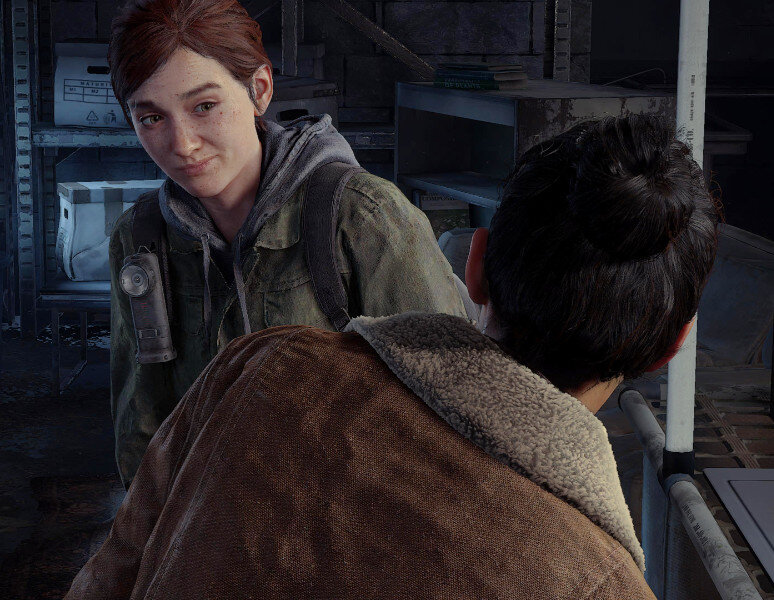LGBTQ+ Main Character Representation in Video Games
Celebrating Individuality in Gaming
The video game industry has not always been accepting of LGBTQ+ stories, gameplay, and characters. Often their representation was mainly through quirky NPCs or stereotypical storylines. However, several game makers broaden the video game industry’s perspective in recent years, including AAA developers. In the first of a two-part feature for Pride month, The Load Screen will celebrate main characters from the LGBTQ+ community and how their representation may open the average gamer to think for themselves while in unfamiliar shoes.
There have been LGBTQ+ characters going back to the original Nintendo Entertainment System and even a decade prior. According to the LGTBQ Video Game archive curated by Temple University, Professor Adrienne Shaw references LGBTQ+ characters going back to the 1980s, but most were obscure references or stereotypes. For instance, if I had not read the Super Mario Bros. 2 manual, I would assume that Birdo was female not male because of his hairbow and pink coloration. Some games used LGBTQ+ members as jokes or worse, such as the Leisure Suit Larry Series, which pushes stereotypes.
Flash forward a few decades, and the video game world has finally added titles with LGBTQ+ characters that are serious and meaningful. They are not the stereotypes common in earlier eras since they make hard decisions for survival and stability. These choices often revolve around bigoted actions taken against the protagonist, and it is up to the player to decide how to handle it. In most cases, the actual incident happens before the gameplay picks up, so the game does not echo the hate while offering the gamer a different perspective.
(Image credit: Naughty Dog)
One such character is Ellie from The Last of Us 2. She has her first real relationship in The Last of Us: Left Behind, but it is tragically short when it ends with both Ellie and her love infected. She falls in love with Dina in the new game, but the zombie apocalypse is brutal on everyone, including a budding relationship. The title includes a scene early on where Ellie must confront a fellow survivor who is forced to apologize for his inappropriate actions. No option changes the issue’s outcome since it resolves in a cutscene where she does not fully accept it. While I am always a fan of giving a player choice throughout a game, the bigot is a throwaway character who does not come up again, so it never affects the outcome of her story.
Why the character of Ellie is impactful for LGBTQ+ representation shows through several factors. Her overall story throughout TLOU2 is heart-wrenching. At one point, she could have the perfect life with Dina, but her ties to a lost family member pulled harder. She is a badass who could stand her ground against mutated monstrosities to raiding human parties. When the recent updates came to the PlayStation 5, I could not wait to play with Ellie one more time through the post-apocalypse. The most significant impact she has is that she proves an LGBTQ+ protagonist is highly marketable to the video gaming industry. In this PlayStation Blog Post from June 2020, Senior VP of PlayStation Worldwide Marketing for SIE Eric Lempel announced that TLOU2 sold more than 4 million copies. With this success, expect more LGBTQ+ main characters that are unapologetic, strong, and relevant.
(Image credit: DONTNOD Entertainment)
Other platforms besides PlayStation have such inclusive protagonists. Xbox One, Xbox Series X/S, and PC owners can experience DONTNOD’s award-winning title: Tell Me Why. The player controls twins in the game, and Tyler is a transgender man supported by his recently reunited sister Alyson. Depending on conversational choices, characters will act more spiteful towards Tyler at first. In the second chapter, a transphobic character named Tessa questions his identity, and players can forgive or shun her.
Why Tyler’s character matters for LGBTQ+ representation shows in numerous ways. Even though Tell Me Why has distinct flashback sequences, Tyler is never referenced by his birth name since his chosen identity is clear and unwavering. In the last chapter of the game, family friends show that they accept him, offering a glimpse at how to begin a more open community. Tyler’s story is not one-dimensional, and he has a potential love interest and friend. His story has garnered Tell Me Why several awards, including The Game Awards 2020 Games for Impact award.
It is also important to note that The Last of Us 2 won the most accolades at The Game Awards 2020, including Game of the Year. However, both Tell Me Why and The Last of Us 2 were honored by the 32nd Annual GLAAD Media Awards. Tyler Ronan’s character is recognized as the first playable trans character, while Ellie is recognized as the first lesbian character starring in a AAA title. Two milestones for an underrepresented and traditionally marginalized community even within the video game industry.
LGBTQ+ protagonists are only one way the community is represented throughout video games. Both The Last of Us 2 and Tell Me Why have only come out in 2020 within months of each other, but there are different ways for games to be inclusive, which our second article will spotlight. However, the impact of strong characters such as Tyler and Ellie will follow more LGBTQ+ main characters in the coming years. The Load Screen looks forward to playing more inclusive stories and LGBTQ+ characters in the future.



